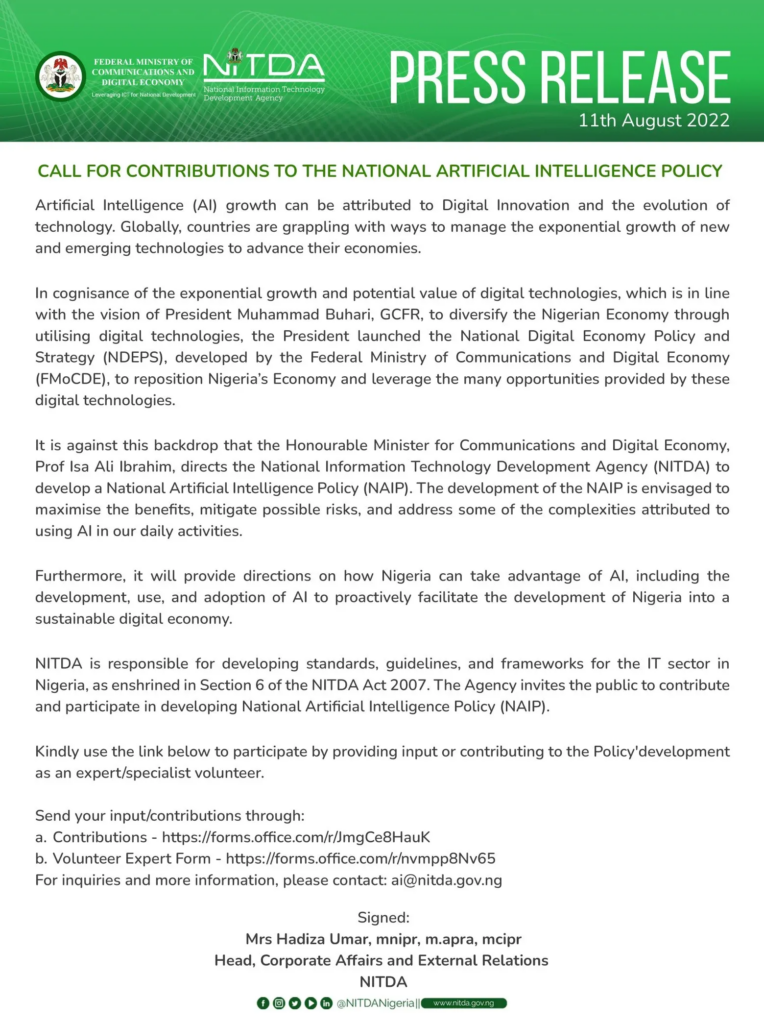The National Information Technology Development Agency (NITDA) is seeking the contributions of stakeholders to enable the development of the National Artificial Intelligence Policy (NAIP).
In line with the NITDA Act 2007, which mandates the agency to create a framework for the planning, research, development, standardisation, application, coordination, monitoring, evaluation and regulation of IT practices, activities and systems in Nigeria and all matters related thereto, the Federal Ministry of Communications and Digital Economy has directed NITDA to develop a National AI policy.
Hajia Hadiza Umar, NITDA’s Head of Cooperate and External Relations said that the development of the NAIP is envisaged to maximise the benefits, mitigate possible risks, and address some of the complexities attributed to using AI in our daily activities. “This is envisaged to reposition Nigeria’s economy by leveraging the opportunities that digital technologies, including the development, use, and adoption of Artificial Intelligence (AI) provide by proactively facilitating the development of Nigeria into a sustainable digital economy,” Umar said.

Nigeria is arguably one of Africa’s AI champions, being the first country in the region to institutionalise a National Centre for AI and Robotics (NCAIR); and the establishment of dedicated government institutions that are fostering a knowledge-based economy and promoting the research and development of AI systems in Nigeria.
In a policy brief, Paradigm Initiative advised that the National Policy on AI should prioritise regard for Nigeria’s democratic values; comply with Nigeria’s constitutional principles; and help to meet the socioeconomic needs of the Nigerian people.
The policy will provide directions on how Nigeria can take advantage of AI, including the development, use, and adoption of AI to proactively facilitate the development of Nigeria into a sustainable digital economy.
Globally, AI companies attracted $77.5 billion in investment in 2021, a 115% increase from the $36 billion recorded in 2020. This represents the growing interest in AI from investors and governments, which can be traced to COVID-19’s impact.
Per the Government Artificial Intelligence Readiness Index 2020, out of 160 countries across the world, Nigeria is ranked 113 in the world and 25th in Africa. The index ranks countries based on 42 indicators across three pillars: government; technology sector; and data and infrastructure—this further reflects the need for the Policy which will bolster innovation in the AI sector.
Get passive updates on African tech & startups
View and choose the stories to interact with on our WhatsApp Channel
Explore




